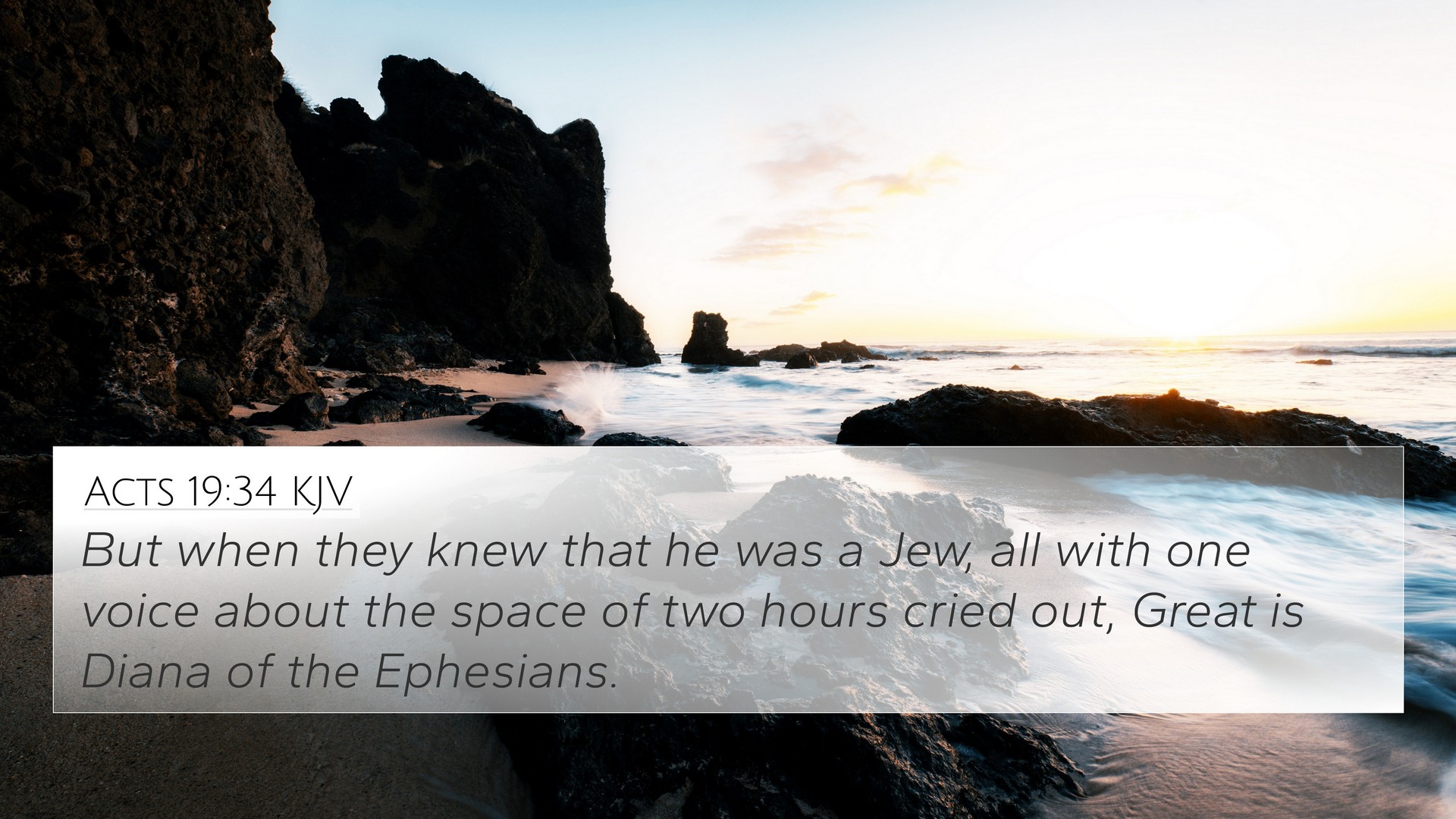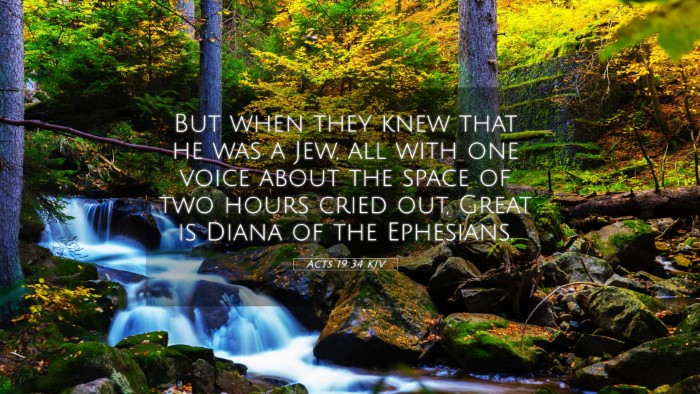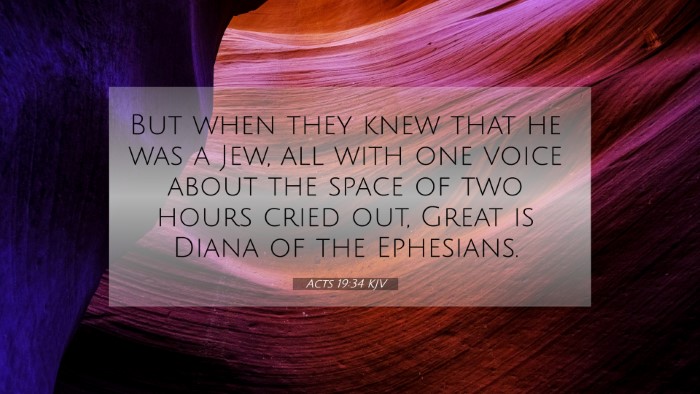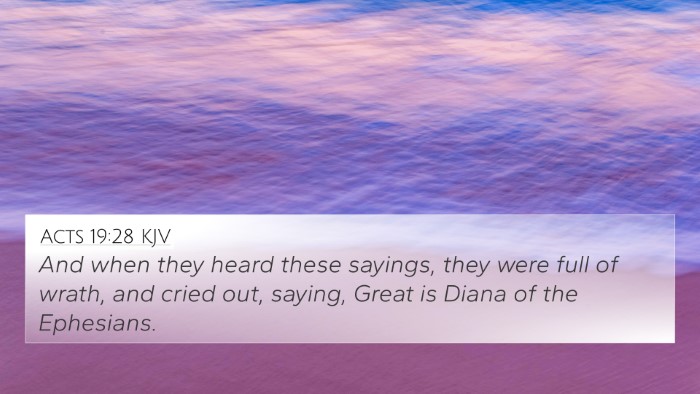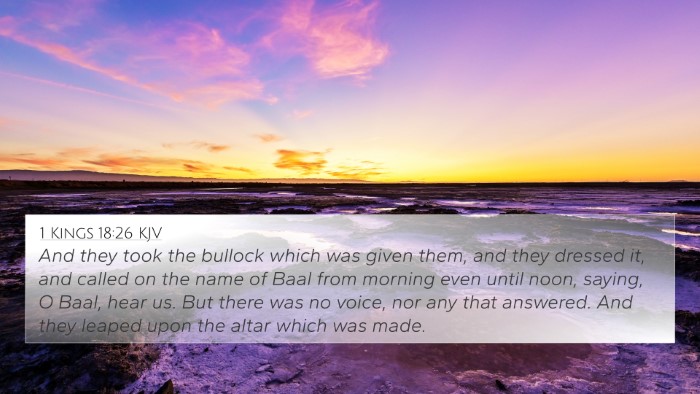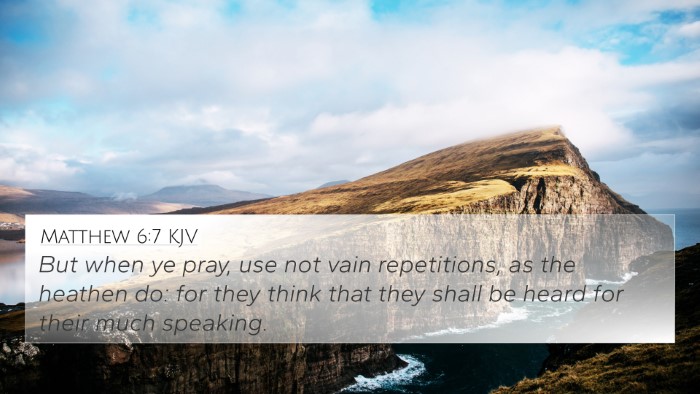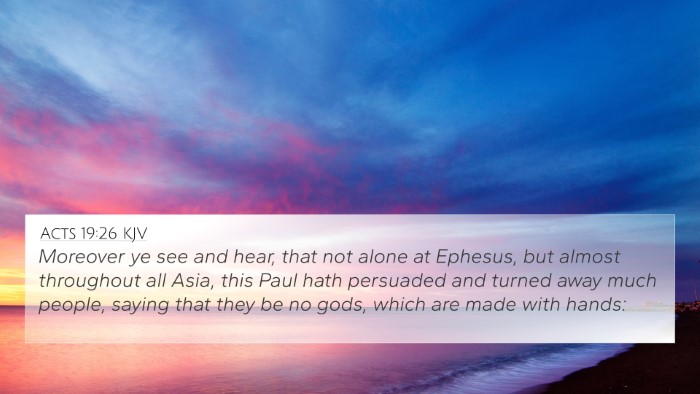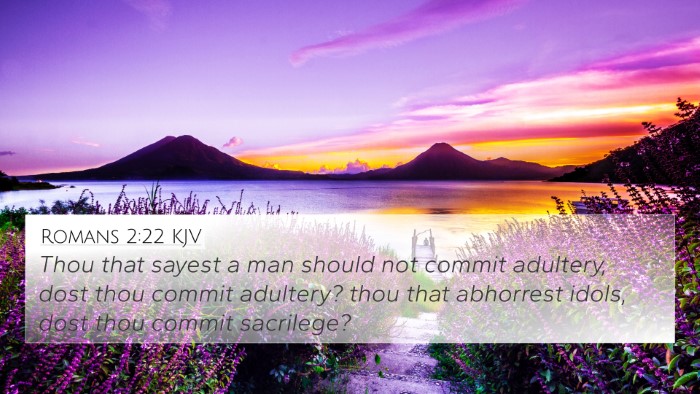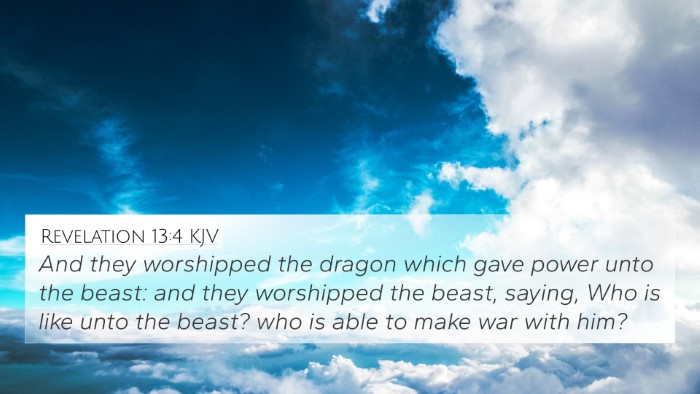Understanding Acts 19:34
Background Context: Acts 19:34 occurs during the Apostle Paul's mission in Ephesus, where he is preaching the gospel amidst growing opposition and confusion among the local populace, especially regarding their idolatrous practices. This verse presents a moment of chaos as a public official attempts to restore order.
Verse Analysis
Acts 19:34 states: "But when they recognized that he was a Jew, all with one voice cried out for about two hours, 'Great is Artemis of the Ephesians!'" This verse highlights several key themes and historical factors relevant to the understanding of the passage.
-
Crowd Mentality:
The reaction of the crowd emphasizes the influence of collective sentiment, showcasing how a unified emotional response can lead individuals to disregard reason and truth. As Matthew Henry notes, the tumult signifies the power of idolatry over people's hearts.
-
Religious Zeal:
Acts 19:34 illustrates the passionate devotion the Ephesians had for their goddess, Artemis. Albert Barnes explains that this verse captures not merely a cultic fervor but also a deep-seated cultural identity, integral to the Ephesians' daily life and commerce.
-
Jewish Identity:
Recognition of Paul as a Jew suggests the prevailing tensions between differing religious beliefs. Adam Clarke points out that being labeled as a Jew intensified the hostility, which highlights an important aspect of early Christian identity amid a predominantly pagan society.
Bible Cross-References
The significance of Acts 19:34 can be better understood through its connections with other scriptural passages:
- Acts 16:20-21: Paul and Silas faced a similar mob mentality in Philippi, showing the repeated challenges believers encountered in preaching the gospel.
- Acts 17:18: The philosophical debates in Athens underscore the clash between Christian doctrines and prevailing pagan beliefs.
- 1 Corinthians 12:2: Paul alludes to the former lives of the Corinthians, emphasizing their transition from idolatry to Christianity.
- Romans 1:25: This verse discusses the exchange of the truth of God for a lie, connecting to the Ephesians' devotion to a false deity.
- 1 Thessalonians 1:9: Paul commends the Thessalonians for turning from idols to serve the living God, paralleling the transformation sought within Ephesus.
- Revelation 2:1-7: The message to the church in Ephesus highlights both the zeal and the need for repentance from idolatry (with specific reference to their initial fervor).
- John 12:43: This passage addresses the fear of men overshadowing the fear of God, resonating with the response of the Ephesians to Paul.
Thematic Connections
Acts 19:34 invites an exploration of several interrelated themes through scriptural cross-referencing:
- Idolatry and Religious Conflict: This theme is prevalent from Genesis through Revelation, illustrating the consistent tension between God's people and idol worship.
- Community and Identity: The dynamics in Ephesus reflect broader cultural struggles that involve the identity of believers and communal practices around worship.
- Cultural Relevance of the Gospel: The power of advocacy in a hostile environment is seen through Acts and various Pauline Epistles, signifying the transformative message of the gospel.
Conclusion
Acts 19:34 serves as a crucial vignette within the larger narrative of the early church’s expansion amidst adversities. By examining this verse in conjunction with its cross-references, readers gain a richer, more nuanced appreciation of the multifaceted dialogue between faith and culture, idolatry and devotion, as well as the complex interactions between early Christians and pagan societies.
Further Study and Resources
- Explore Bible Concordance tools to identify more cross-references and thematic connections.
- Utilize a Bible Cross-reference Guide for deeper study into the backgrounds of related verses.
- Engage with Bible Reference Resources for comprehensive methodologies in studying inter-Biblical dialogues.
